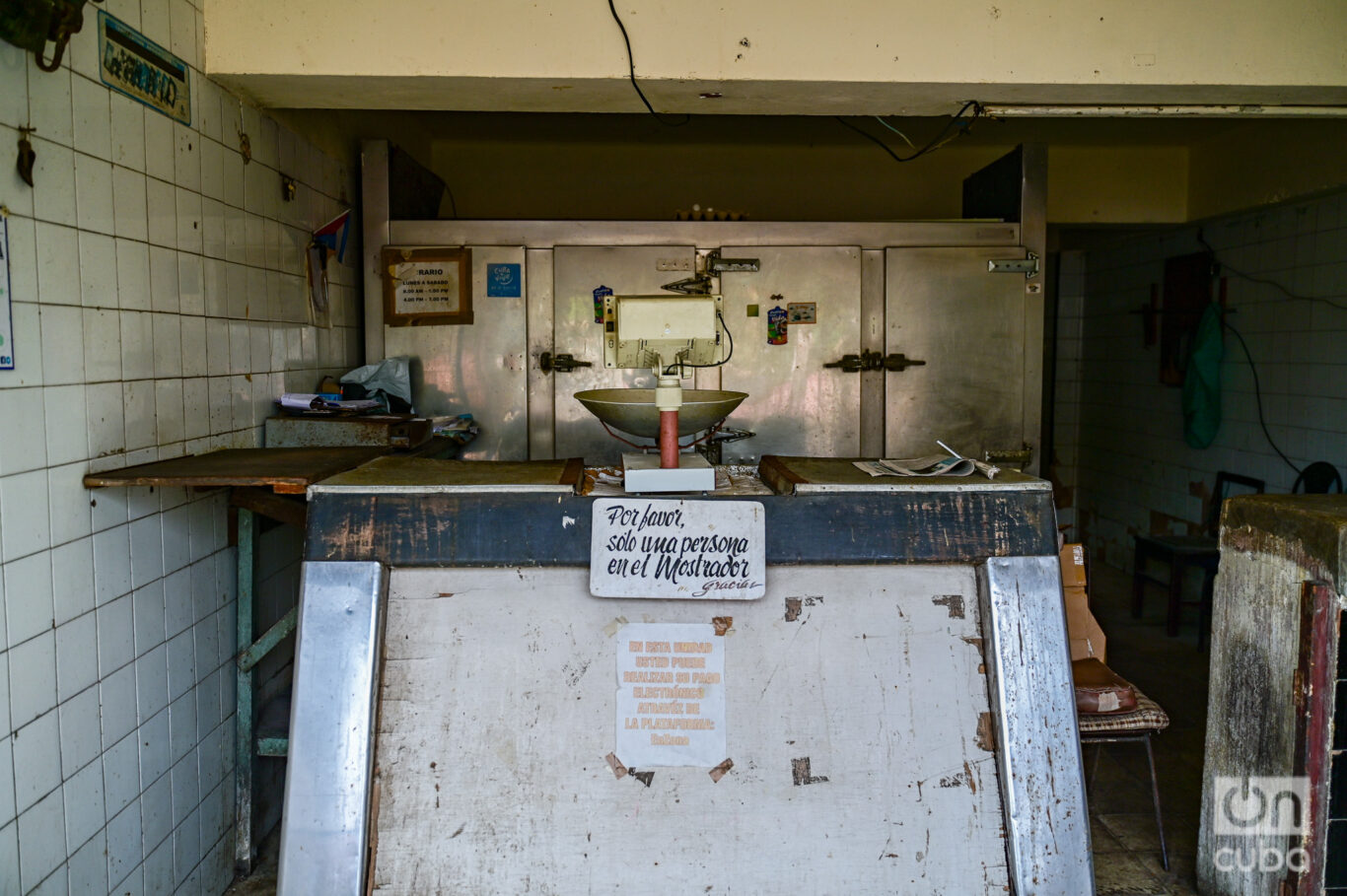A small farmer from the southern cone of Latin America with the surname Mujica reminded us that, to have cows, you have to have calves, and for that you have to have grass, and to have grass you have to have land. With this he made clear something that seems obvious, and that is the need to understand these processes in all their magnitude and breadth, instead of seeing them segmented and separated from each other.
This is not an article to address the problems of the Cuban agricultural sector, something that has been dealt with in many others and by many other colleagues more knowledgeable than me on the subject. My purpose is to invite you to reason about our economy and the way in which attempts have been made to manage it in recent times, and of course agriculture is implicitly included.
Our economy, like any other, is like the cow in question: it needs its calves, which in this case would be its enterprises; its pasture, which would be the sources of investment; and the appropriate land, which would be nothing other than the institutions and organizations that would guarantee that the pasture grows strong and abundant.
The Cuban economy has been drying up little by little and, like a poorly fed cow, it does not give enough milk, the enterprises ― all except those 268 that concentrate 80% of sales and the 20 that receive 80% of foreign funds ― barely manage to survive, the resources to invest are scarce and are not used well when they are available, and it even happens that when they appear ― whether domestic or foreign ― we do not use them appropriately; and the institutional arrangements are often not adequate to achieve the necessary dynamics. It has been said many times, it is true, but there is no choice but to repeat it, because in the same way the decisions that have brought us up to here are repeated many times.
If the macroeconomic situation according to what was published in July were to be summarized in a few indicators, the picture would be: GDP with negative dynamics; insufficient supply; fiscal deficit of more than two digits; secularly low national investment rate; inflation of more than two digits; insufficient purchasing power of wages; negative trade balance and current account; very high foreign debt and debt service; insufficient flow of foreign investment. Even if the blockade did not exist, getting out of this situation would require measures in accordance with the seriousness of the conditions and with great consistency.

What is surprising is:
- First, that six months after December 2023, the government has still not made public a comprehensive reform program (goals, deadlines, dates, responsible organizations) that responds to the situation;
- that, recognizing that one of the great weaknesses of the Cuban economy is the low levels of production and productivity of the agricultural sector, the program of 63 measures is not thoroughly reviewed and a profound reform of the Cuban agricultural sector is not carried out, including ministries, delegations, Higher Organizations of Business Management (OSDE) and enterprises.
- that both in December and July, a great many of the measures/ideas that are announced are more focused on correcting errors than on taking advantage of opportunities and generating confidence in the future;
- that several of the measures announced since December are inconsistent with each other; for example, strengthening the value of the Cuban peso while expanding the partial dollarization of the economy; boosting growth by increasing the tax burden while eliminating tax benefits for economic actors; or setting profit margins for enterprises using an exchange rate that in no way reflects real market conditions;
- that, given a substantial supply deficit and the State and its enterprises not being able to cover it, port tariffs and services should be charged in foreign currency, which will reduce imports and translate into an increase in prices for the population;
- that, recognizing the insufficiency of wages and retirement and pensions, all these measures and some more should be approved, which will further reduce the purchasing power of wages;
- that, recognizing the need for the business sector to become more dynamic and knowing that the lack of autonomy of these enterprises is one of the main causes of their low dynamism, sectoral and ministerial interests should be allowed to continue postponing the approval of the much-announced law on enterprises;
- that, since it was the private business sector that was able to contribute to boosting supply, increasing employment, improving the Cuban productive system and recovering infrastructures and productive systems, many of which had been practically abandoned, measures are taken that slow down the creation of new SMEs, make imports difficult by reducing the number of state-owned importing enterprises; and that suppliers are forced to pay from Cuban banks that have shown they cannot guarantee these payments, either because of the blockade or for other reasons associated with their own weakness in financial terms.
- that, since SMEs have contributed 15% of tax revenue, measures are taken to slow down their creation, to further bureaucratize the process and to force them to restrict their activity to the municipality in which they are tax-registered, as if businesses understood administrative borders, also condemning the poorest municipalities to not receiving “national external flows” of capital that would boost their economies;
- that while SMEs are systematically required to become part of production processes and produce (something that some already do), attempts are being made to limit their capacity to accumulate and their ability to obtain financing to meet this demand;
- that official media and speeches insist that SMEs and the self-employed are to blame for the country’s inflation and decapitalization, when official data show that the start of the inflationary process precedes SMEs by at least one year and has one of its causes in the poor execution of the so-called “Reorganization”; while decapitalization is associated with a low investment rate and an allocation of investment resources that is clearly incorrect;
- that while the need to obtain foreign investment flows and new credits has been demonstrated, creditors continue to be asked for understanding, instead of presenting a concrete plan for negotiating the foreign debt, including the payment of retained dividends of foreign investors.
It is as if there were a special interest in slowing down/stopping/impeding/blocking/obstructing everything that generates economic dynamism, new opportunities, hope and confidence in the future. And this is very strange, considering that Cuba is being disrupted by unchecked emigration, something that strategically compromises our present and our future. It is even stranger that there is so much coincidence with those who, from other latitudes and longitudes, are also betting on and doing to make the so-called complementary sector fail. It is as if they had agreed.
It is true that it is insisted that this is not a war against SMEs; however, the very measures announced and admitted by those who claim it ― among which I do not include those aimed at increasing fiscal discipline, which seem necessary to me ― indicate the opposite.
Below I list a group of actions that could help create the necessary confidence. I list them in the order in which I understand would be most appropriate. Almost all of them have been proposed before by different Cuban economists. It can be done, even without many resources, it can be done.
- Immediately begin the gradual migration from product subsidies to people subsidies.
- Negotiate the foreign debt. Today there are some specific experiences of exchanging debt for assets or productive concessions.
- Complete the approval of the law on state-owned enterprises and ensure that it guarantees the autonomy promised more than forty years ago, when the Economic Management and Planning System was implemented.
- Reduce the contribution for state investment that state-owned enterprises pay, especially exporting and high-tech enterprises.
- Expand the range of activities that can be performed by the private sector.
- Take advantage of the municipalization of the approval of economic actors and approve an expeditious mechanism for the creation of new MSMEs, totally transparent and following international standards.
- Re-grant the tax benefit of one year without taxes for all new forms of management, state and non-state.
- Establish specific tax and tariff benefits that favor high-tech SMEs, whether state or private.
- Allow the creation of non-state Import-Export enterprises.
- Eliminate the obligation to hire labor through state employers.
- Complete the approval of the regulations that enable foreign investment with non-state forms of management.
- Extend the status of SMEs to private agricultural producers and agricultural cooperatives and grant them tax and tariff benefits for productive operations conditioned to verifiable results.
- Restore the possibility of defining broad social objectives for all actors (state and private) and eliminate the limit of five complementary activities established later.
- Promote the creation of Special Local Development Zones, which enjoy tax and tariff benefits and are approved by local authorities.
- Allow the usufruct of land for agricultural production by new non-state forms of management.
- Significantly reduce the State apparatus in a gradual process, with established deadlines and with temporary protection for employees in said ministries.
- Open the Cuban banking sector to international banking operations using supervision and regulation mechanisms that comply with international standards.
- Establish the mandatory public bidding of all those assets of the people that are to be temporarily transferred to non-state forms of management, including land in usufruct.

At the same time, action should be taken on the money market:
- Allocate a dollar fund to create the foreign exchange market. The fund could have state and non-state, national and foreign participation based on participation shares with variable returns.
- Begin the creation of the foreign exchange market by establishing in a first stage a reduced circuit of state and non-state enterprises, with priority for export enterprises, high-tech enterprises, state and private agricultural producers, and importers of raw materials for food production.
- Establish a floating band for the exchange rate in that market.
- Formalize those informal operators who operate in the foreign exchange market and want to take advantage of the opportunity.
- Promote the creation of joint investment funds (state-private, national and foreign) to promote agricultural production and undertake infrastructure works that meet international standards for this type of business.
If calves are not cared for, if they are harmed, if the appropriate conditions for their growth are not created, if they are scared away, if we turn pasture land into a swamp…no, we will not have cows.










